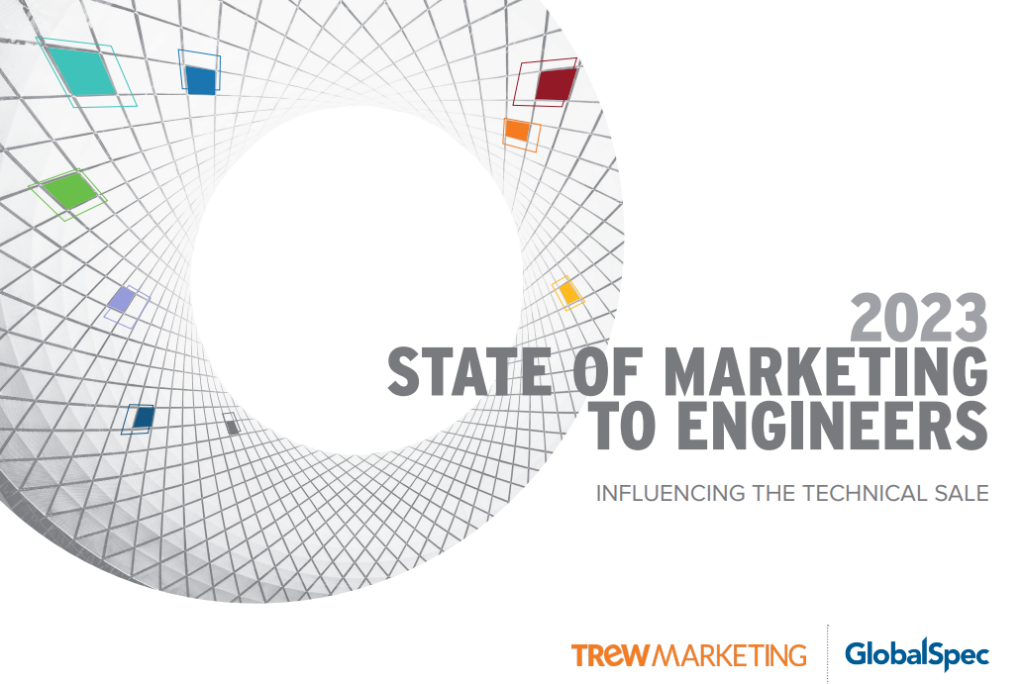Engineers scan through at least five pages of search engine results before finding what they need, with just 4% of them staying on the first page. They tend to look through the search results with the intention of discovering some really detailed information from reliable sources.
51% of them ignore sponsored search ads, but 44% will click on them if they are clearly related to their search query or lead to a well-known website. Marketers may take advantage of this tendency by creating content campaigns based on client pain points and specialty applications.
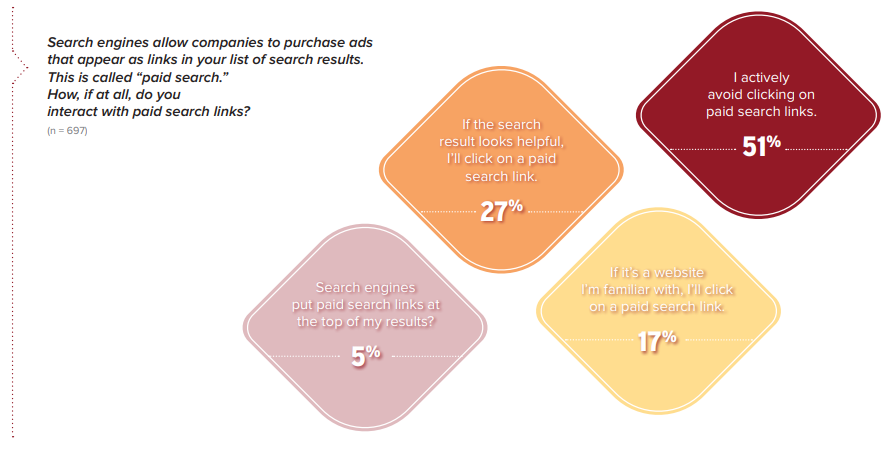
Engineers go directly to vendor websites when researching a specific product or service and consult trusted industry resources like online trade publications and/or directory websites. Top manufacturers and distributors continue to promote their products in key industry directories, and engineers prefer when such content is organised by product or solution type.
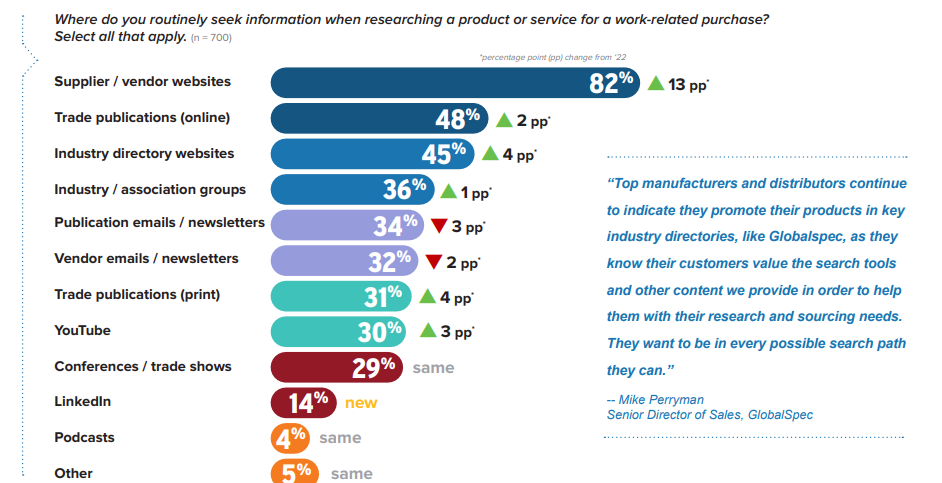
About half of engineers review one to five pieces of content as part of their vendor consideration process, with another 34% reviewing six to ten and 12% even more.

Content with specific technical details is the most valuable, followed by content that provides information on use and implementation.
Engineering experts, technical product managers, and industry analysts are considered the most trustworthy sources, but technical authors aren’t trusted sources by default.
About half of engineers review one to five pieces of content as part of their vendor consideration process, with another 34% reviewing six to ten and 12% even more.
Content with specific technical details is the most valuable, followed by content that provides information on use and implementation. Engineering experts, technical product managers, and industry analysts are considered the most trustworthy sources, but technical authors aren’t trusted sources by default.
When it comes to newsletters, the most appealing features for engineers are details on impending vendor releases along with industry news and trends, followed closely by research findings and case studies.
Among the numerous online communities to choose from, engineering professionals may keep up with the newest developments and technologies by using YouTube, LinkedIn, and GitHub. YouTube is the platform of choice for product demos, detailed learning, and occasional project builds.
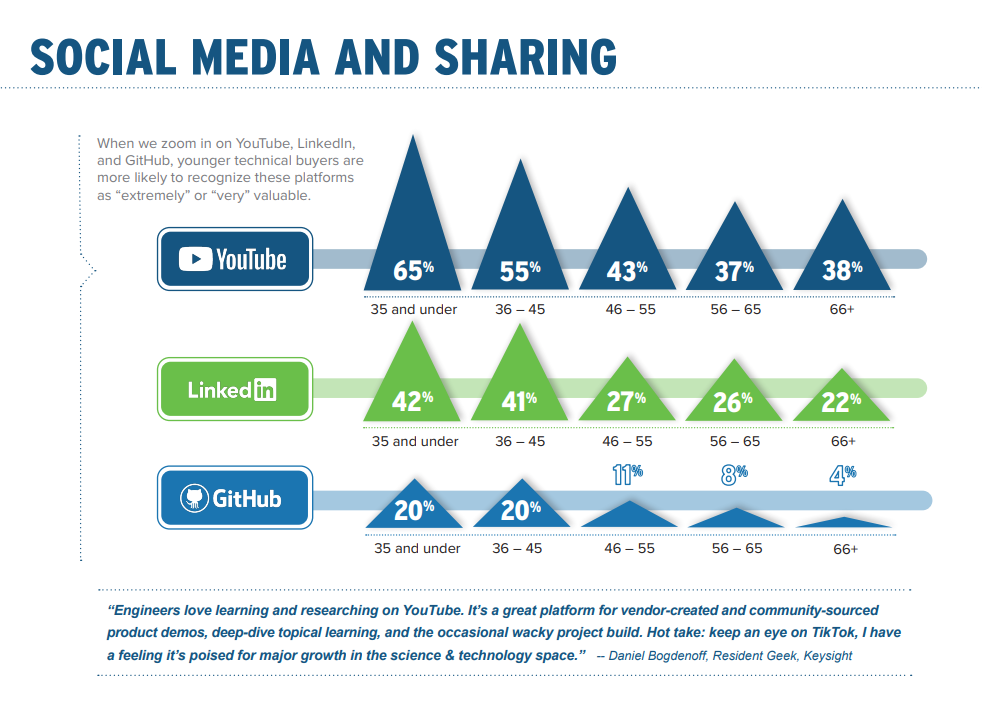
On LinkedIn, a common attention grabber is research content with data, according to 77% of respondents
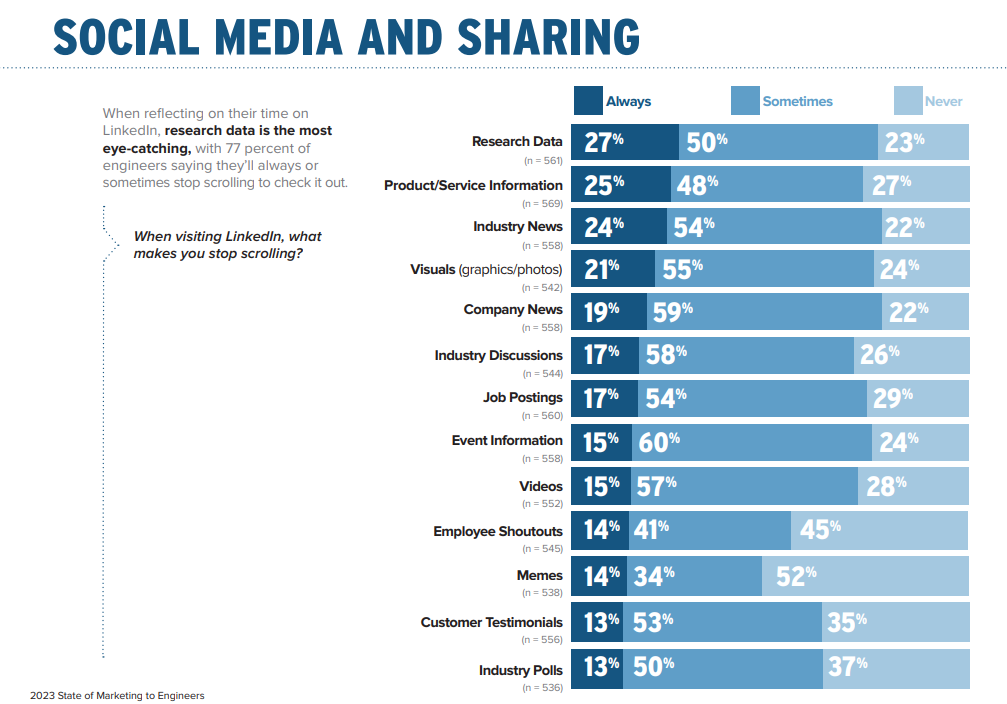
84% of engineers turn to some sort of expert in the industry—mostly to look for information on industry trends but also to seek trusted opinions and vendor endorsements.
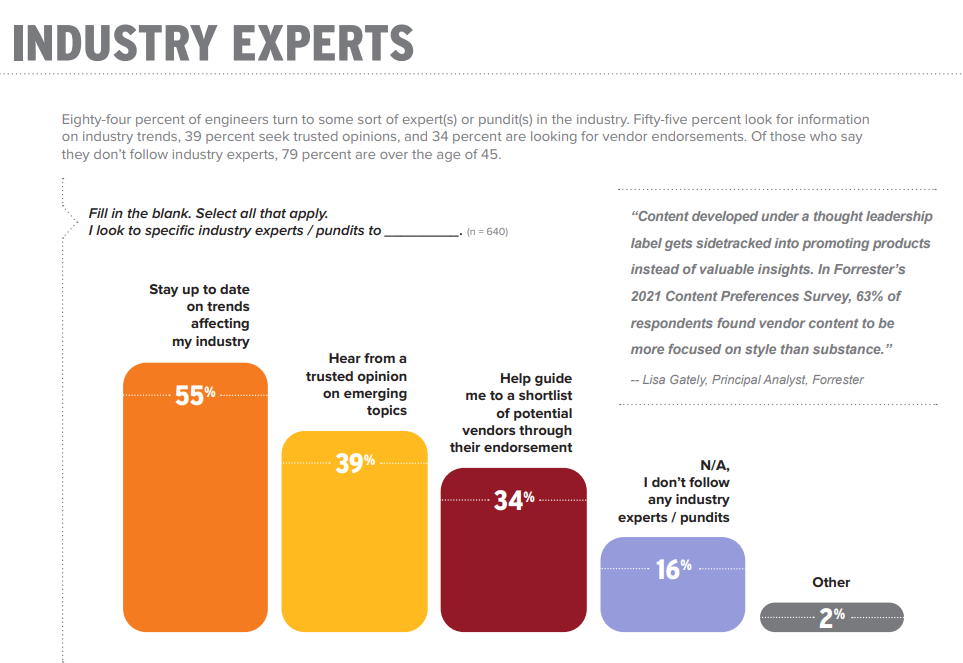
Those who don’t follow industry experts tend to be older than 45.
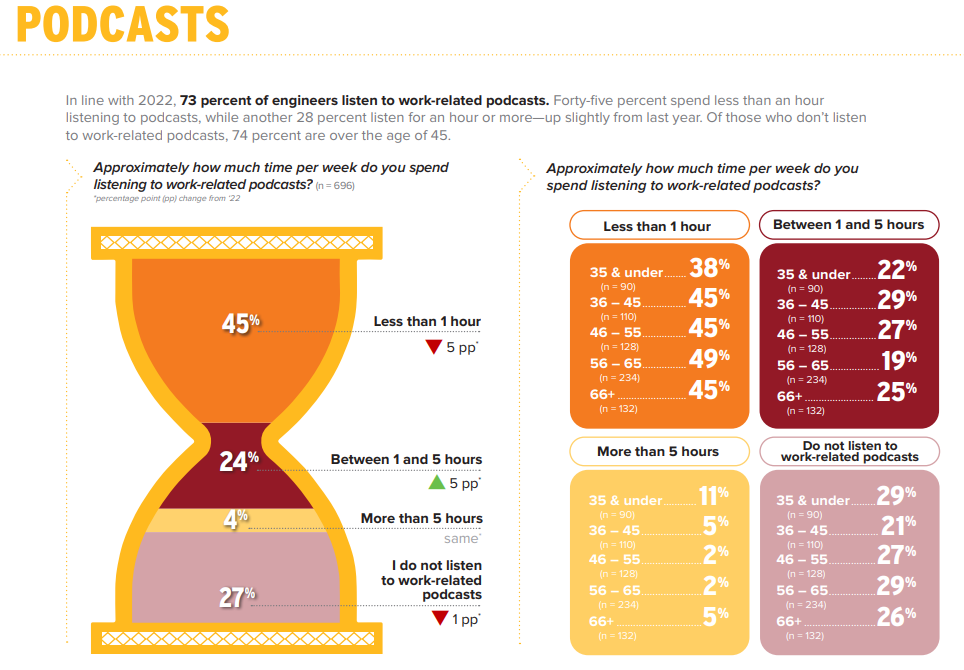
73% of engineers listen to podcasts about their jobs. The majority of them consider 15 minutes or less to be the optimal length for a podcast. Most of them also look for instructional “how-to” material, professional comments from the field, or specifics on current events and trends.
As for in-person events, 55% of engineers plan to attend about the same number of events or more compared to pre-pandemic times.
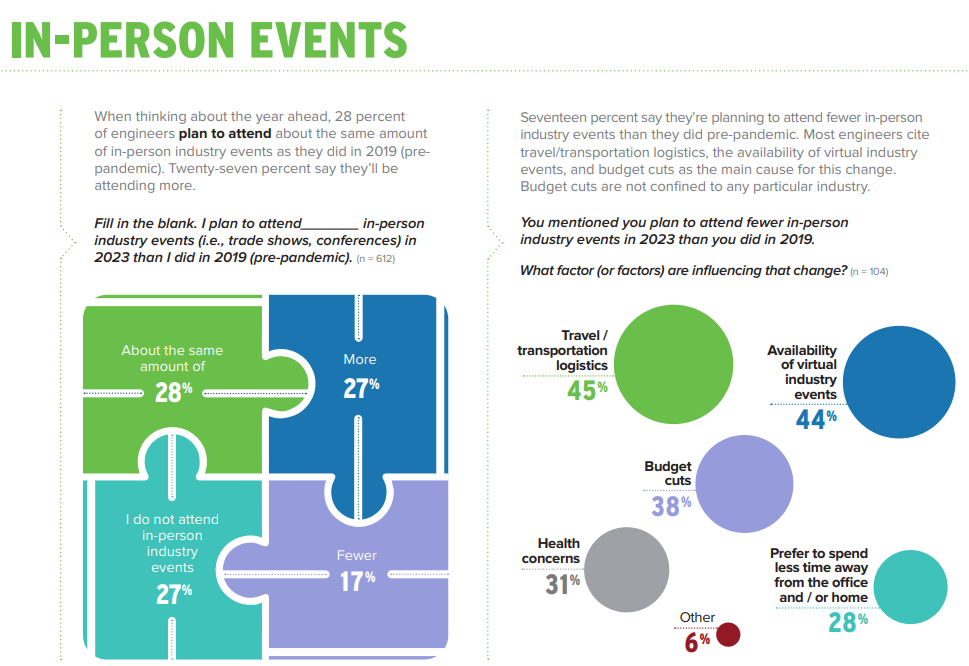
The 2023 State of Marketing to Engineers Report indicates that engineers are highly discerning when evaluating technologies. While engineers spend an increasing part of their customer journey online, marketing teams will be more challenged than ever to deliver content in a way that truly speaks to this audience.
Download the report:







